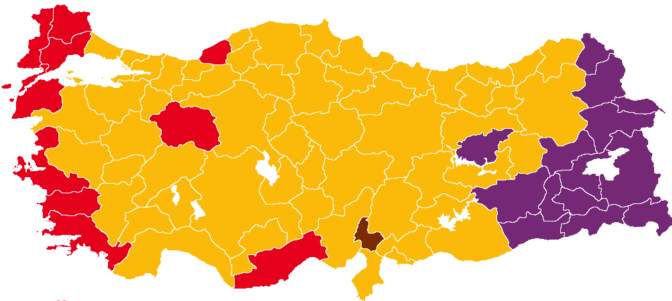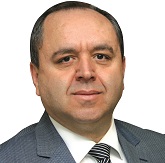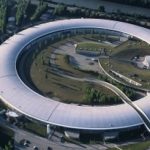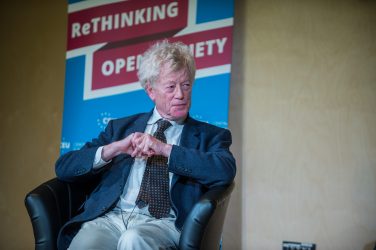On 7 June, 46 million Turkish citizens cast their votes at home and abroad showing a huge drop in confidence towards the government of the last 12 years. The election saw the Justice and Development Party (AKP) lose a stunning 68 seats and nearly 10% of the overall vote. The surprising result comes barely a month after the UK saw the Conservative Party freed from the shackles of coalition government. David Cameron has since been gleefully announcing austerity measures and welfare cuts uninhibited by the buzzkill Liberal Democrats.

Who’s who?
There has been no such joy for Prime Minister Ahmet Davutoğlu and President and founder Recep Tayyip Erdoğan who grudgingly accepted that no party now has a mandate to form a government by itself. At present talks are underway between the AKP and the Republican Peoples Party(CHP) to discuss the possibility of forming a coalition. Reuters suggests that the post of Defence Minister could be offered to the CHP as part of a deal. The CHP is Turkey’s oldest political party founded by Kemal Attaturk after the First World War and adheres to an ideology of secularism and social democracy. The CHP has already asked the far right Nationalist Movement Party (MHP) to enter into a coalition. However, the combined seats would still be insufficient to overrule the larger AKP contingent, much less hold a parliamentary majority and in any case, the offer has been declined.
The AKP was founded on Islamist principles but have shifted towards social democracy. However, when Prime Minister, Erdoğan was accused of intruding into the personal lives of the people and appeared to be making attempts to move towards what some called a moral muslim majority. Understandably the idea of a coalition as a junior partner may not hold little appeal for the CHP.
The culprit
Both main parties have lost seats to the newly formed Peoples Democratic Party (HDP). The HDP is a pro-Kurdish party with strong representation for the LGBT community and now the highest percentage of female MPs out of any party in government. Until now they not been able to achieve the necessary 10% of the vote to enter parliament. In previous elections they have fielded independent candidates, to whom this restriction does not apply. The brave decision to stand as a unified political party has certainly paid dividends in the form of a whopping 13% of the vote and 80 parliamentary seats.
The formation of a coalition should force the AKP to reassess itself and offer more rights to the Turkish people and especially to the Kurdish Minority.
A rod for the back
Prof. Dr. Ihsan Bal, a researcher at the International Strategic Research Organisation (USAK) and the head of its academic council believes the HDP’s success is not simply a matter of good policy.
IB: The HDP’s appeal for more democracy and freedom through non-violent means of politics recieved some approval by the public. On the other hand, it looks like the AKP also made a number of mistakes.

Among these he includes Erdoğan’s decision to call a halt to the peace talks with the Kurdistan Workers Party (PKK), the main separatist group in the East. The Kurds comprise around 18% of Turkey’s population and the peace process, which started in 2012, could have seen the end to 4 decades of sporadic violence. Erdoğan was accused of trying to polarise public opinion in order to gain support; a move which was predicted to, and did, backfire. In addition the AKP mismanaged the fight with IS forces in the city of Kobane on the Turkey-Syria border. Kobane has suffered repeated assaults since last year and Turkey’s refusal to intervene has caused international controversy. The fighting has intensified in recent weeks with residents claiming that IS fighters have been allowed across the border despite a heavy Turkish police presence. Kurdish fighters now say that the jihadists have been driven out of the city. These, say Dr. Bal, alongside an impression of dirty tactics has contributed to the dramatic loss of AKP seats. They underestimated the resilience of the HDP, who did not rise to the bait.
Triumphs of the HDP
IB: The shift of votes from AKP to HDP is not solely because of AKP’s poor moves. I think HDP deserves credit for its election campaign. Many provocations that took place deliberately targeted the HDP election campaign. But they resisted the provocations and reacted with calmness, rationality and wisdom. They did not pursue a campaign solely targeting the ethnic Kurds but rather a rhetoric which appealed to the wider public. It is believed that considerable amount of the HDP’s 13% might have come from Turkish voters.
“It would not be an exaggeration to say that, after the election, Turkish democracy deserves more credit and should be referred to as a mature democracy rather than a fragile democracy.”
Foreign policy
Far from the sense of foreboding one might feel reading articles on the issue, Dr. Bal is of the opinion that the result could be a positive outcome, not only for the Turkish people but for the neighbouring countries as well.
IB: There are good reasons to believe that election results will serve in a positive sense towards the Turkey-EU relationship. Almost all the parties, particularly the CHP and the HDP, have positive agendas towards Turkey-EU relations. It is also fair to say that a wounded AKP (the main loser of the elections) will also turn to Europe for healing. The EU may be seen as a fresh start for Turkish foreign policy or even a chance to reset the deadlock in the Middle East. In addition, since the EU is facing great challenges on Russia, the Middle East and North Africa, it values the partnership with Turkey more.
The winners
There is good reason to believe this to be a positive result at home as well, AKP rule over the last 12 years has led to a perception of unilateral governance. The formation of a coalition should force the AKP to reassess itself and offer more rights to the Turkish people and especially to the Kurdish minority.
IB: The biggest winner of these elections is the Turkish public. They demonstrated the strength and maturity of the Turkish public. It would not be an exaggeration to say that, after the election, Turkish democracy deserves more credit and should be referred to as a mature democracy rather than a fragile democracy. The public’s consciousness, awareness and responsiveness deserve full credit in regard to monitoring the elections. This effort also removes the shadow of questions towards the fairness of the elections. The public participated all the way in this political process which shows the healthy side of Turkish democracy. The result will provide a more plural voice and more inclusiveness in the decision-making process.
Cover photo: Salih Turan; Licence: Public Domain Mark 1.0










